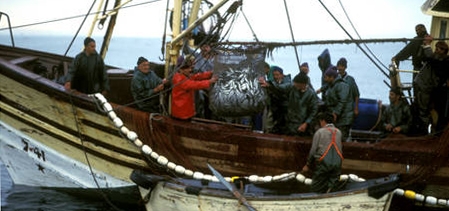Productivity of fisheries will be largely reduced by 2050 due to climate change

The warming of the world’s oceans, which is expected to worsen, has led to the spread of aquatic diseases and an invasion of fetid seaweed. It halts fishing boats from navigating to the sea, affecting millions of people’s livelihoods.
According to an analysis from the U.N. Food and Agriculture Organization (FAO), changes in the ocean such as water temperature and sea levels will impact communities on land. For example, increased fishing costs and fall in catches have occurred in the Caribbean due to the invasion of stinky seaweed.
Milton Haughton, the executive director of the Caribbean Regional Fisheries Mechanism intergovernmental agency said:
"The sargassum is a new phenomenon, unprecedented and massive in its scale. It prevents boats from going out. When it stays on the coastal harbour areas, it rots, decays, depletes the oxygen in the water and releases toxic substances and the fish dies"
Research by the FAO with collaboration of 100 scientists indicates that the productivity of global fisheries will decrease in exclusive economic zones (EEZs) by 2050 due to climate change, fluctuating from 3% to 12%.
An EEZ allows a country to have exclusive rights to exploit the 200 mile area surrounding it. Tropical countries, such as Fiji, will experience the largest reduction in productivity of fisheries. This is a major concern for the Fijian government who will need to reconsider food production and consumption.
Netani Tavaga, an official from Fiji's Ministry of Fisheries, said:
"The obvious worry is food for our people. So what we're trying to do right now is to move to aquaculture. We also have to change the eating habits of the Pacific islanders, like Sunday is fish day. Maybe we need to start thinking about transitioning to other food sources."
However, aquaculture is exposed to the impact of climate change as well. The analysis found floods and storms could reduce food production and damage infrastructure, whereas reduced rainfall will increase competition for fresh water.
The analysis also found that in order to prevent a fall in catches curbing pollution and preventing destructive fishing is essential.
A collaboration between science and technology is expected to be activated to help fishing communities accommodate to changes in the Caribbean waters.
Mr. Tavaga added:
"At the same time, we're having large quantities of other fish we're not used to. So everything is changing, and that in itself is a problem because you don't know what's happening and you can't plan."
Join us for the 10th Anniversary AIDF Global Summit in Washington D.C, USA on 5-6 September 2018 to discuss global challenges such as climate change, food security and natural disasters.
If you’d like to stay informed on the latest updates in aid and development, please sign up for the AIDF newsletter.
Image credit: FAO










_(1)-115x71.jpg)




